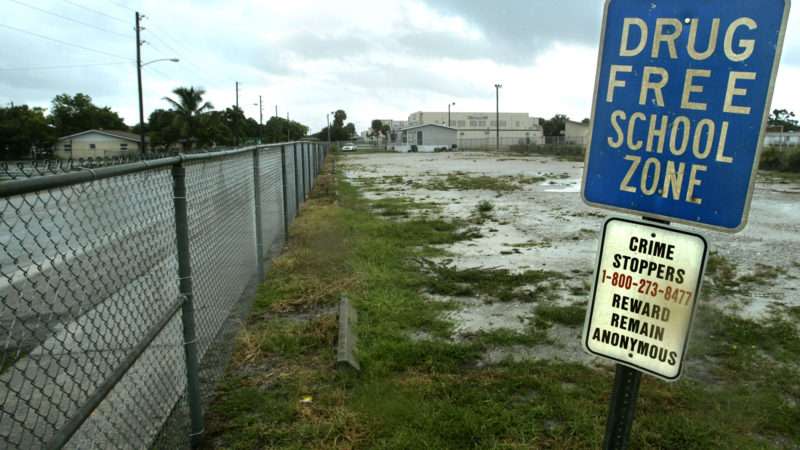Tennessee Gov. Bill Lee Quietly Kills Clemency Initiative for Drug-Free School Zone Offenders

Republican Tennessee Gov. Bill Lee has quietly ended a fast-track clemency process for drug-free school zone offenders who were serving outdated sentences.
Lee announced the initiative in 2021, after the Tennessee Legislature passed reforms to the state's harsh drug-free school zone laws. But those reforms were initially not made retractive, leaving more than 300 people serving sentences that were no longer on the books.
The expedited clemency process was supposed to provide those incarcerated people with a fast avenue for relief, but three years later it's been shut down while some petitions were still pending, according to an email from the Tennessee Attorney General's Office shared by Daniel Horwitz, a Nashville civil rights attorney.
"Earlier this year, the Governor decided to end this expedited review process, and this change was posted publicly on the Department's website," the office wrote to Horwitz in response to a pending petition concerning one of his clients, Wayne Potee.
An undated text box on the department's "agency services" webpage says, "Going forward, requests for clemency for individuals convicted pursuant to the Drug-Free School Zone Act will be reviewed by the Board of Parole."
"Minimal as it was, the Drug-Free School Zone clemency program was among the only positive things that Lee has done for criminal justice reform during either of his two terms as governor," Horwitz says. "Ending the program prematurely and without notice to anyone—particularly after applicants like Wayne Potee were already approved under it—is a betrayal."
A 2017 Reason investigation showed how Tennessee's drug-free school zones covered huge swaths of urban areas and turned minor drug crimes into mandatory minimum prison sentences that rivaled those for second-degree murder and rape.
The Tennessee Legislature passed a bill in 2020 reducing the size of these zones to 500 feet and requiring that the mandatory minimums be applied only if a defendant's conduct actually endangered children. But the new law was not retroactive, so hundreds of offenders were left to serve the remainder of their sentences.
In 2022, the Tennessee Legislature passed its first-ever retroactivity bill, allowing offenders doing time for drug-free school zone offenses under the old law to petition a judge for resentencing.
Potee was one such offender. He was sentenced in 2015 to a 15-year mandatory minimum prison sentence for selling a small amount of meth to an undercover cop in a drug-free school zone. Potee had become addicted to opioids after a shoulder surgery and was cycling through relapse and recovery. He started selling meth so he could afford Suboxone, an opioid addiction medication.
After the retroactivity law was enacted, Potee petitioned judge to be resentenced but was denied. Potee's commutation petition was only approved by the Tennessee Department of Correction and sent to the governor's office this January. While it was still pending, Lee's office quietly ended the initiative without alerting Horwitz, or presumably other petitioners.
It's unknown how many petitions were still pending when Lee's office ended the program, but based on the emails shared by Horwitz, there were at least two.
Horwitz says he was told to resubmit Potee's petition through the Tennessee Board of Parole, only to then be told there was no longer any special consideration for drug-free school zone offenders. Horwitz says obtaining clemency in Tennessee under the standard considerations is "basically impossible, akin to winning the lottery."
Potee remains incarcerated with no possibility of parole. His release date is 2030.
Lee's office did not immediately return a request for comment.
The post Tennessee Gov. Bill Lee Quietly Kills Clemency Initiative for Drug-Free School Zone Offenders appeared first on Reason.com.
